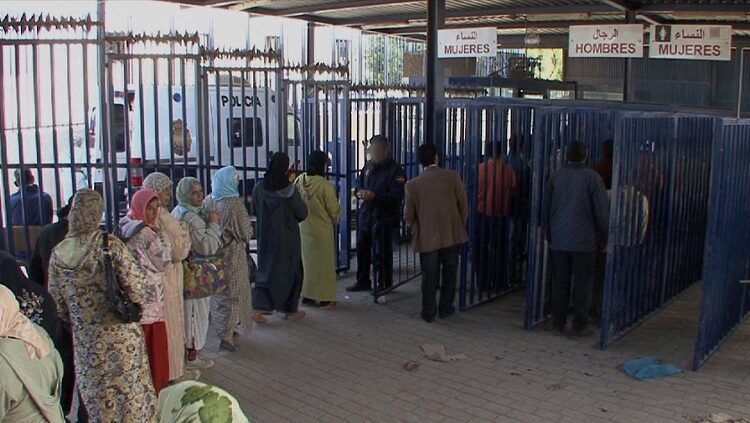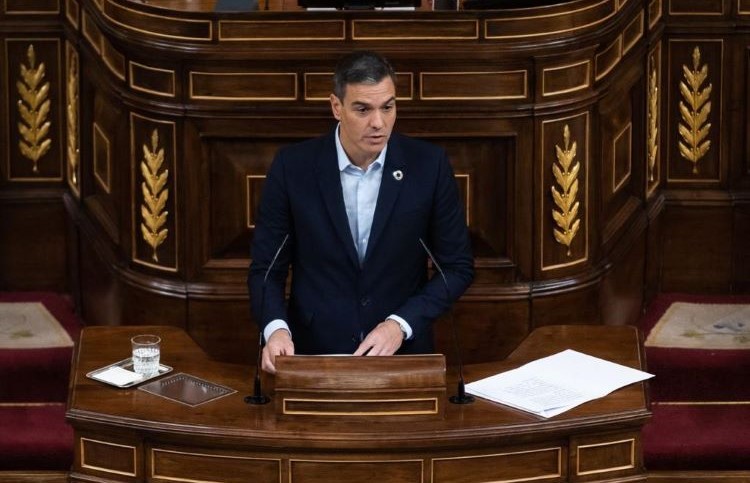The Diplomat
The Moroccan Foreign Ministry was forced to issue a statement yesterday acknowledging that there are land borders with Spain, after a letter sent by Rabat to the UN Human Rights Council came to light in which it claimed otherwise and described Melilla as an “occupied prison”.
The letter, dated 9 September, is a response to the Council’s request for clarification on the “excessive and lethal use of force” against migrants of African origin in the events of 24 June at the Melilla border fence.
In this letter, to which Europa Press had access, Morocco stated that it is “inaccurate” to refer to “the separation line between Morocco and Melilla” as a “Spanish-Moroccan border”, as stated in the text requesting clarification, since “the Kingdom of Morocco has no land borders with Spain and Melilla is still an occupied presidio, and for this reason, we cannot speak of borders, but simply of crossing points”.
The dissemination of the document provoked the spokesperson of the Popular Group in the Congress of Deputies, Cuca Gamarra, to take advantage of her intervention in the plenary session of the Chamber to urge the President of the Government, Pedro Sánchez, to say that what Rabat declares is “categorically false” and not to leave “without defending our territorial integrity” and the sovereignty of Spain. From his seat, Sánchez responded emphatically: “Ceuta and Melilla are Spain, full stop”.
After the uproar created by the letter, Morocco hastened to clarify a letter that seemed to once again dynamite the climate of understanding created between Madrid and Rabat, which last April began a new stage in diplomatic relations after the letter sent by Pedro Sánchez to King Mohamed VI stating that the Moroccan autonomy plan for the Sahara is “the most solid, realistic and credible basis” for a solution to the conflict.
A senior official from the Moroccan Ministry of Foreign Affairs told Efe that the joint declaration signed by Morocco and Spain on 7 April recognises that there are also “land borders” between the two countries.
In that declaration, however, land borders were not mentioned, when it was announced that “the full normalisation of the movement of people and goods” would be re-established “in an orderly manner, including appropriate customs and people control mechanisms on land and at sea”.
Yesterday, however, the aforementioned Moroccan official quoted that statement, modifying it and speaking of “…appropriate arrangements for customs and people control at land and maritime borders”.
Spanish diplomatic sources consulted by The Diplomat highlighted that, after the letter was sent to the Human Rights Council, a meeting took place on 21 September in New York between the Minister of Foreign Affairs, José Manuel Albares, and his Moroccan counterpart, Nasser Bourita, in which the matter was discussed, to the point that after their meeting, they said that the intention of the two governments is for customs to open during the month of January.
“We have agreed to work so that the beginning of the passage of goods in an orderly and gradual manner through the land customs posts takes place throughout the month of January,” Albares revealed, referring to the customs office in Melilla, closed by Morocco unilaterally in 2018, and the opening of a new one in Ceuta, where it did not exist to date.
The Moroccan minister confirmed his country’s intention to comply with what was agreed in the declaration of 7 April and said that the two countries will work for “a return to normality in an effective manner” in terms of the passage of people and goods through the land and sea posts, trusting that the necessary “devices” will be in place “from the beginning of the year in the framework of frank cooperation between two partners and friends”.
The senior official of the Foreign Ministry insisted yesterday that the declaration adopted in April following the meeting between Mohamed VI and Sánchez “contains the bases and fundamental principles of the new phase of partnership between the two neighbouring countries”.







